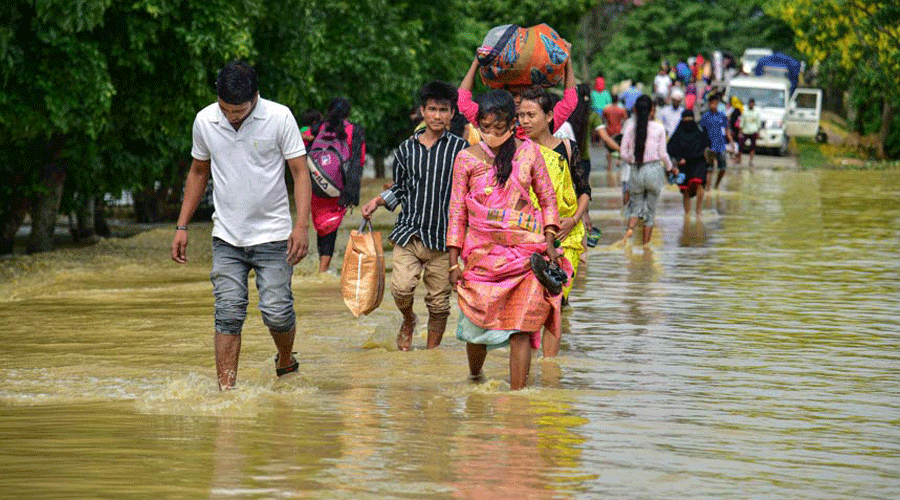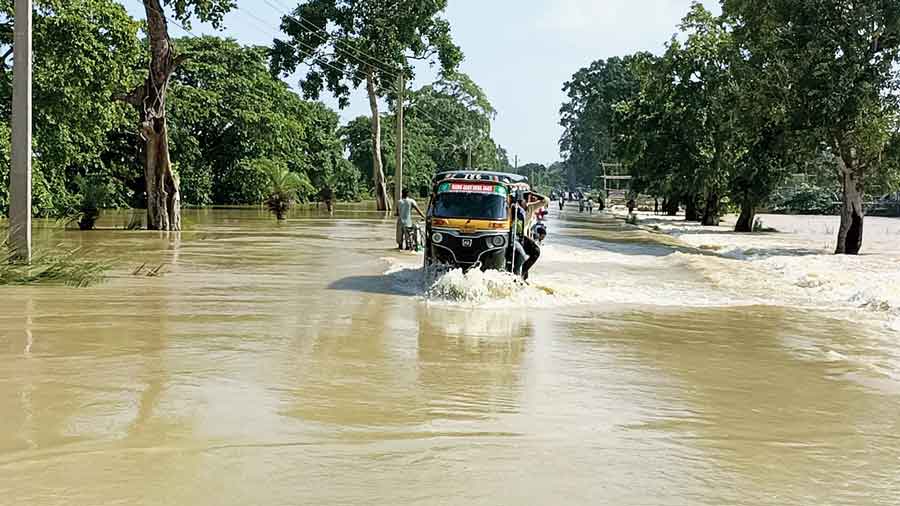With around 100 villages still remaining marooned due to the twin floods in the Mahanadi and Subarnarekha river systems, Odisha has reported around 900 cases of diarrhoea and other waterborne diseases over the past fortnight, an official said on Friday.
The state government has also received reports of 88 cases of snakebites from 14 flood-hit districts, where around 10 lakh people have been affected by the calamity, Public Health Director Niranjan Mishra said.
He said that no death has been reported in the snakebite incidents and every block has antivenom drugs.
"The situation is not alarming," Mishra claimed, even as he did not confirm any recent diarrhoea deaths as "we have to investigate the cause".
The official said 900 cases of waterborne diseases were reported from 14 districts over the past fortnight since heavy rain started lashing the state, adding that the situation was under control in Koraput and Rayagada -- the two areas worst affected by diarrhoea.
In Koraput, around 70 people were infected over the past week and there are 21 active cases now, a district official said.
At least 17 people have died of diarrhoea and hundreds were infected in several districts due to the outbreak that began in July-end.
Diarrhoea cases are now being reported from the deluge-hit districts after incessant rain over the past two weeks due to three back-to-back weather systems, including a deep depression.
People were reportedly drinking contaminated water amid a shortage of fresh drinking water sources in marooned villages. There is a risk of spreading waterborne diseases like cholera and jaundice due to the consumption of contaminated water.
The official has urged the people earlier to drink water only after boiling it or using halazone tablets, which act as a disinfectant.
Around 350 medical relief centres and 120 mobile medical teams are active in the flood-affected areas, where 10 lakh halazone tablets and 2 lakh oral rehydration salt (ORS) sachets have been distributed, Mishra said.












